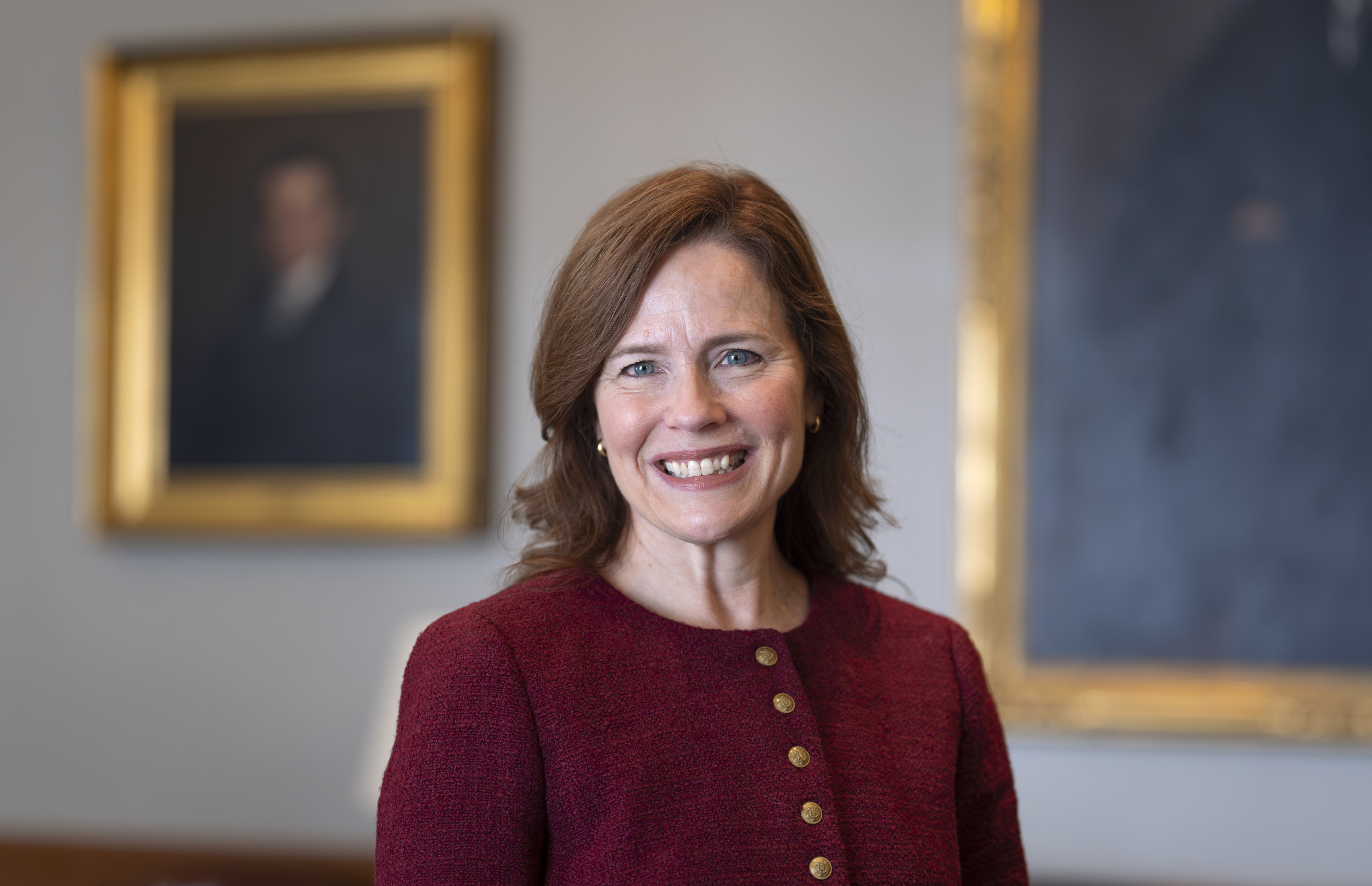How Should the Supreme Court Approach Free Speech? Insights from Amy Coney Barrett

Published: 2025-09-18 15:46:37 | Category: Trump GNEWS Search
Justice Amy Coney Barrett recently discussed the complexities of free speech and originalism at the National Constitution Center, emphasising that the Constitution's meaning should be derived from its original public understanding rather than the intent of its framers. This approach is particularly relevant in the current climate of free speech debates which have intensified in recent years.
Last updated: 06 October 2023 (BST)
Key Takeaways
- Barrett argues for understanding the Constitution through its original public meaning.
- She uses modern examples, such as Snapchat, to illustrate her points on free speech.
- The ongoing debate about free speech is influenced by recent political events and societal changes.
- Barrett highlights the importance of civility and collegiality among justices.
- Her recent book reflects on these themes and her legal philosophy.
Understanding Originalism in Free Speech
Originalism is a legal philosophy that interprets the Constitution based on the meaning it had at the time it was ratified. Justice Barrett's interpretation favours "original public meaning" over "original intent." This distinction is crucial; it shifts the focus from the mindset of the framers, like James Madison, to how the text would have been understood by the public in the late 18th century.
During her remarks, Barrett illustrated this point with a contemporary example: the platform Snapchat. She provocatively asked, "What would James Madison think about Snapchat?" This rhetorical question underscores the challenge of applying historical intent to modern communication technologies. Barrett argues that the Constitution is not merely a historical document but a living body of law that governs present-day society.
Free Speech in the Context of Current Events
Free speech is enshrined in the First Amendment of the United States Constitution and has been at the forefront of numerous national discussions, particularly in light of political tensions and incidents of violence. The assassination of conservative commentator Charlie Kirk sparked debates about the limits of free speech, especially when it appears to be used to incite violence or hatred.
Attorney General Pam Bondi has commented on this issue, asserting that free speech is broad enough to protect various forms of communication but does not extend to violent actions. She stated, "Free speech protects ideas, debate, even dissent but it does NOT and will NEVER protect violence." This sentiment echoes Barrett’s views, which recognise that while free speech is expansive, it has boundaries that cannot be crossed without consequence.
Barrett's Influences and Legal Philosophy
Barrett's legal philosophy has been influenced significantly by her former boss, Justice Antonin Scalia, who was a prominent advocate of originalism. Barrett praised Scalia's ability to make legal concepts accessible to both lawyers and the general public. She noted, "Justice Scalia... tried to bring the Constitution and the court and law to people, lawyers and nonlawyers alike." This approach resonates with her aim to engage a broader audience in discussions about constitutional interpretation.
In her recent book, "Listening to the Law: Reflections on the Court and Constitution," Barrett elaborates on these themes, reflecting on her experiences and the importance of understanding the law beyond mere legal jargon. Her insights are particularly relevant as the Supreme Court prepares for a new term, which begins on October 6.
The Importance of Civility Among Justices
Barrett also emphasised the importance of collegiality and civility among Supreme Court justices. In her view, maintaining a respectful and friendly atmosphere is essential, even amid robust debates about ideas and legal interpretations. "I firmly believe with all of my colleagues that civility and warmth and friendship should always be front and center," she stated, highlighting a desire for a cooperative environment despite differing opinions.
The Future of Free Speech Debates
As society grapples with the implications of free speech in an increasingly digital world, Barrett's perspective brings a critical lens to these discussions. The constant evolution of communication platforms raises questions about how laws developed in the 18th century can apply to 21st-century challenges. The implications of her views on originalism may shape upcoming Supreme Court cases, particularly those that address the intersection of free speech and technology.
What Lies Ahead for the Supreme Court
With the new Supreme Court term on the horizon, legal experts and observers are keenly watching how Barrett's interpretations will influence court rulings. The Court will likely tackle cases that involve free speech rights, especially those involving social media platforms and the responsibilities they hold in moderating content. As these discussions unfold, Barrett’s emphasis on original public meaning may provide a framework for how the law is applied to new forms of communication.
As we navigate the complexities of free speech in today’s world, it remains crucial to recognise both the historical context of the law and its modern interpretations. This balance will be key in ensuring that the rights enshrined in the Constitution are upheld while addressing the unique challenges posed by contemporary society. How we interpret these rights today will have lasting implications for future generations. #FreeSpeech #Originalism #SupremeCourt
FAQs
What is originalism in legal interpretation?
Originalism is a legal philosophy that interprets the Constitution based on its original public meaning at the time of ratification, rather than the intent of its framers.
How does free speech apply to modern technology?
Free speech rights extend to various forms of communication, including digital platforms like social media. However, it does not protect actions that incite violence or unlawful behaviour.
What did Justice Barrett say about the role of civility among justices?
Justice Barrett stressed the importance of civility and friendship among Supreme Court justices, believing that respectful debates about ideas should not compromise collegiality.
What are the implications of Barrett's views on free speech?
Barrett’s views may shape how the Supreme Court addresses cases involving free speech, especially those related to technology and social media, as society continues to evolve.
When does the new Supreme Court term begin?
The new Supreme Court term begins on 6 October 2023, during which several important cases are expected to be heard.



